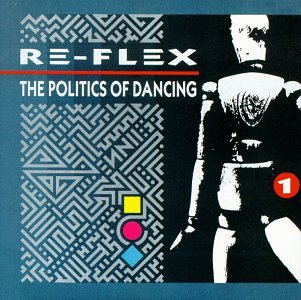The question before me this week is about the future of publishing, and honestly, I couldn’t care less about the future of publishing [0].
People are worried about the effects of Internet-mediated business cycle disruption. The thing about disruptive technologies is that they’re disruptive— they shake things up, move them about, force them to do the hokey-pokey when they’d really rather not dance. The people most likely to be hurt are those who are most invested in the old ways of doing things. They’ve built their business model on the tried and true and will not be moved, in the hope that past performance is a predictor of future success and all that. Above all, they want stability, predictability, and a steadily increasing cash flow.
I am old enough to remember when the Internet was being hailed as the great bypasser of traditional gatekeepers (in this case, the publishers), giving artists the opportunity to market directly to the public. And to a certain extent, that happens quite a bit. You don’t have to get hired by a major metropolitan newspaper to get your opinions on the issues of the day in front of readers anymore— you just have to start a blog. You can turn your Nanowrimo novel into a .pdf or .mobi file and distribute it basically for free, and maybe even earn a few bucks in the process.
But here’s the thing. Bypassing the gatekeepers— becoming your own publisher— has been happening for centuries. All you needed was access to a printing press/mimeograph/photocopier. You could create newsletters/fanzines/chapbooks to your heart’s content, in small press runs, at very low cost. And you could even make a few bucks selling them at the comic book shop/convention/paranoid conspiracy gun show. People still do that today. If you wanted a little more polish, you could hire or barter for editing and layout work, and pay for a hardbound vanity press edition. These days you set up a CafePress store or similar, and you won’t even have to clean out enough room in your garage to store boxes of books or haul them around in your trunk.
What the publisher provides isn’t the physical (or these days, electronic) object. They don’t just stand between author and reader, collecting tolls. Publishers are middlemen, yes, but value-added middlemen. An author signs a contract (after reading it very carefully first, natch) that provides not only an audience for his work, but also quality control and marketing. The reader picks up the book expecting a certain baseline quality of story, grammar, and presentation. Furthermore, the publisher’s brand helps the reader find a book they’re likely to enjoy even if they’re not familiar with the author.
That’s what a brand is, you see. A guarantee of a certain quality of a product line. You wouldn’t expect Proctor and Gamble, manufacturer of household cleaning supplies, to build a decent car, and you wouldn’t expect Ford Motor Company to know from a good horror story. So if you want a book about exploding spaceships or elves in the urban jungle, you’d buy something from Baen. If you want a steamy but traditional romance, Harlequin or Avon. And when you need to fall asleep easily with no nasty side effects, pick up something from Oxford University Press.
There’s only one thing that matters, which is that writers want to make stories, and readers want to read stories, and somehow they’ll figure the rest of it out. Publishers of today don’t look a lot like publishers of 100 years ago, and certainly won’t look anything like publishers 100 years hence. I am fairly certain, though, that there will be some kind of middleman who helps the writer and reader find one another. Today it’s a publisher. Tomorrow it might be an expert system.
[0] My opinion is privileged by the fact that I have no current intention of ever dipping my toe into the business end of literature, and especially not to earn a living at it. My fiction writing is a hobby and an exploration of art and craft. My nonfiction writing earns me a modest salary. My reading is wide-ranging and multi-sourced.
